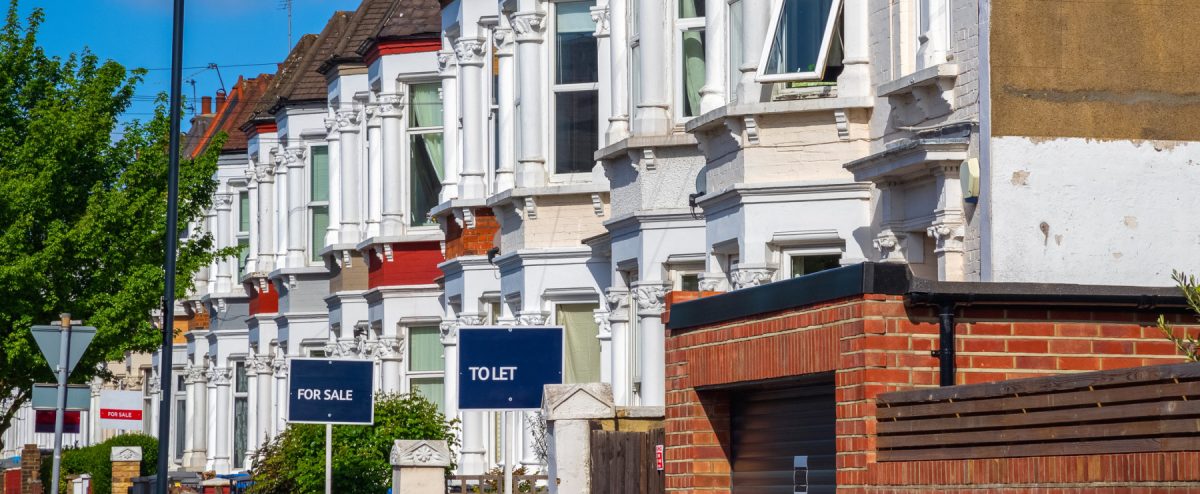
1 April 2024
We are often asked if we consider Buy-to-Let property to be a good investment proposition. Whilst over the last decade, property investment has proved to be popular, there are a number of factors we believe investors should consider before embarking on buy-to-let property investment.
House Price Inflation
You should consider whether the rise in property prices will continue in the future. As interest rates rise and recent changes in taxation take effect, house price rises are reducing and in London price falls are being recorded.
Mortgage Interest Costs
Historically, mortgage interest for buy-to-let investors had been deductible from income. Since April 2020, you now receive a tax-credit, based on 20% of your mortgage interest payments. Higher rate taxpayers will therefore lose out significantly from the previous tax regime.
Income Tax
Your property rental income is taxable at your marginal rate. You will need to declare your property income within a tax Self-Assessment.
Costs, Costs, Costs
There are a number of additional costs which are often not fully factored into a buy-to-let investors yield calculations:
- Stamp Duty Land Tax: There is no Stamp Duty payable up to £250,000 (0%). From £250,001 to £925,000, the rate is 5% and from £925,001 to £1.5 million the rate is 10%. Above £1.5 million, the rate is 12%. Additionally, there is an extra 3% Stamp Duty levied on second homes or buy-to-let properties.
- Maintenance Costs: You will need to factor in costs to maintain property in order. The ‘Wear and Tear’ allowance which can be deducted from rental income was changed in 2016 from 10% of rent, to actual costs incurred.
- Letting Agency Fees: Using an agent to help let your property and potentially fully manage the letting process and deal with tenants directly, can cost anywhere between 10-20% + VAT of the monthly rental income.
- Legal Fees: Buying, letting and selling can all incur legal fees
- Insurance costs: Your property will need to be insured and it is advisable to also have Landlord insurance
- Policy Initiatives: Currently buy-to-let properties must have a minimum Energy Performance Certificate (EPC) of band E. From 2025, any property let on a new tenancy will need a minimum rating of C. Properties with an EPC band lower than C, will therefore be subjected to energy efficiency improvements and maintenance, which require a significant initial capital expenditure.
Liquidity Risk
Liquidity in property transactions can be fickle. It can take many months to sell your property and potentially at lower than expected values if the property market conditions have deteriorated. Trying to sell your property with sitting tenants may prove problematic. Ongoing costs will still need to be met if selling without a tenant.
Location, Location, Diversification
Property investment returns can be dependent on the property’s location. Unless you are able to invest in multiple properties across different locations and property types, you will not achieve portfolio diversification. Indeed, given most investors will also own their own home, their overall financial net worth could be overly exposed to property investment. You could therefore be exposed to ‘Concentration risk’.
Void Periods
When calculating investment yields, property investors often fail to take into account void periods, when no tenants are in the property. These voids can significantly impact your overall cash flow projections given that costs such as mortgage interest, council tax, insurance etc still need to be paid.
Tenant Quality
You should consider to which segment of the tenant market your property will appeal – students, young professionals or families. The quality of the tenant may have a significant impact on the profitability of the investment.
Investment or Home
It is important to decide if you are purchasing a property purely for investment purposes or for somewhere you would like to live. The property choice for either is likely to be very different. For investment purposes, the location will be key, followed by the standard of the property itself. Tenants will prefer properties in which the facilities and equipment is modern and in good working order. A property purchased for future living might have different qualities and characteristics which may not be so appealing to tenants.
Income Tax
Your property rental income is taxable at your marginal rate. You will need to declare your property income within a tax Self-Assessment.
Capital Gains Tax
Unlike the sale of a ‘principle private residence’ (your home), buy-to-let properties will be subject to, on sale, Capital Gains Tax at either 18% for Basic Rate Taxpayers or 28% for Higher/Additional Rate Taxpayers, after deduction of the annual allowance of £6,000. This allowance will be reduced to £3,000 for individuals during the tax year 2024/25 onwards.
Administration Time
In most aspects of buy-to-let investment, time is required for administration be it purchase, letting, renovating or selling. Even if you have appointed an agent to fully ‘manage’ the property, there will demands on your time when interacting with the agent, for example in relation to quotes for repairs.
Risk Warnings. This document has been prepared based on our understanding of current UK law and HM Revenue and Customs practice as at 1 April 2024, both of which may be the subject of change in the future. The investments we advise on will continue to be diversified across different asset classes and markets. This means that in isolation some of the funds will contain more or less risk than you might normally accept. However, when combined with other investments within your portfolio the overall result is designed to match your tolerance to risk. As with all equity-based and bond-based investments, the value and the income therefrom can fall as well as rise and you may not get back all the money you invested. The value of overseas securities will be influenced by the rate of exchange which is used to convert these to sterling. This should therefore be viewed as a medium to long-term investment. Past performance is not a guide to the future. Please be aware that if you decide to cancel, and in the meantime the value of your investment has fallen, you may not receive back the full amount you invested. While recommended investment transactions remain pending, investment markets may rise or fall so there is potential for loss of income or growth. For investments in property funds, the value of land or buildings is generally a matter of the valuer’s opinion, rather than fact. You may not be able to encash your investment whenever you choose because the land and buildings in the funds may not always be easy to sell and, during periods when they are not readily saleable, the fund manager may refuse to repurchase or surrender your units.


